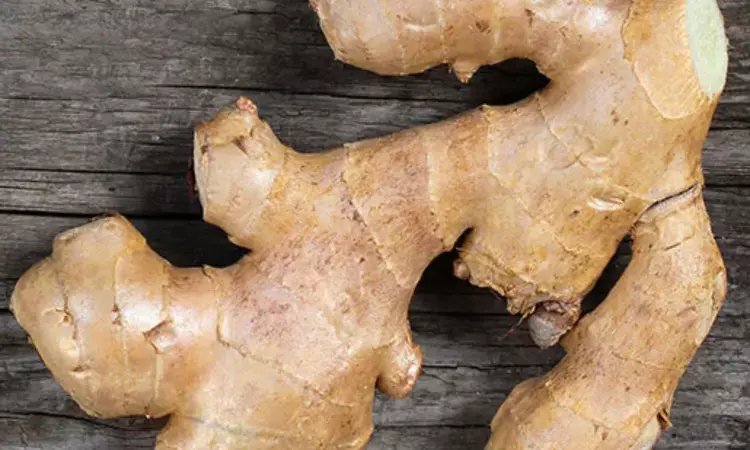- Home
- Medical news & Guidelines
- Anesthesiology
- Cardiology and CTVS
- Critical Care
- Dentistry
- Dermatology
- Diabetes and Endocrinology
- ENT
- Gastroenterology
- Medicine
- Nephrology
- Neurology
- Obstretics-Gynaecology
- Oncology
- Ophthalmology
- Orthopaedics
- Pediatrics-Neonatology
- Psychiatry
- Pulmonology
- Radiology
- Surgery
- Urology
- Laboratory Medicine
- Diet
- Nursing
- Paramedical
- Physiotherapy
- Health news
- Fact Check
- Bone Health Fact Check
- Brain Health Fact Check
- Cancer Related Fact Check
- Child Care Fact Check
- Dental and oral health fact check
- Diabetes and metabolic health fact check
- Diet and Nutrition Fact Check
- Eye and ENT Care Fact Check
- Fitness fact check
- Gut health fact check
- Heart health fact check
- Kidney health fact check
- Medical education fact check
- Men's health fact check
- Respiratory fact check
- Skin and hair care fact check
- Vaccine and Immunization fact check
- Women's health fact check
- AYUSH
- State News
- Andaman and Nicobar Islands
- Andhra Pradesh
- Arunachal Pradesh
- Assam
- Bihar
- Chandigarh
- Chattisgarh
- Dadra and Nagar Haveli
- Daman and Diu
- Delhi
- Goa
- Gujarat
- Haryana
- Himachal Pradesh
- Jammu & Kashmir
- Jharkhand
- Karnataka
- Kerala
- Ladakh
- Lakshadweep
- Madhya Pradesh
- Maharashtra
- Manipur
- Meghalaya
- Mizoram
- Nagaland
- Odisha
- Puducherry
- Punjab
- Rajasthan
- Sikkim
- Tamil Nadu
- Telangana
- Tripura
- Uttar Pradesh
- Uttrakhand
- West Bengal
- Medical Education
- Industry
Is ginger beneficial for treating hyperglycemia and related disorders?

Saudi Arabia: A recent study published in the MDPI journal Metabolites has shed light on the utility of Gingerol, the most active and abundant component of ginger, for treating hyperglycemia and related disorders.
In their study, Khalid Saad Alharbi from Jouf University in Sakaka, Saudi Arabia, and colleagues assessed the progress made in gingerol use as an anti-hyperglycemic molecule and its impact on other disorders linked to it.
Hyperglycemia is observed to affect about 68 percent of patients admitted to a medical ICU (intensive care unit). It is an independent predictor of mortality in many conditions, such as stroke, brain injury, and myocardial infarction. Hyperglycemia is induced by environmental, genetic, and immunologic variables in type 1 diabetes patients. These factors cause insulin insufficiency and pancreatic beta-cell death. In type 2 diabetes patients, hyperglycemia is caused by irregular insulin production and insulin resistance. Hyperglycemia activates several complicated interconnected metabolic processes; and is a significant contributor to the diabetes onset and progression and secondary complications such as nephropathy, neuropathy, cataracts, retinopathy, periodontitis, and joint and bone issues.
Studies have been conducted on ginger's health benefits and the impact of its constituents on hyperglycemia and related disorders. Gingerol has proven to be a potential pharmaceutically active component of ginger that has been demonstrated to lower blood sugar levels because it has antioxidant properties. It functions as an antioxidant in the complicated biochemical process that causes the activation of hyperglycemia.
Gingerol is chemically linked to capsaicin, the fiery component found in piperine (a substance found in black pepper) and chilli peppers. It has extreme potency for the prevention and curing of various ailments. It is a possible medication for hyperglycemia and potentially morbidity-causing disorders, such as nephropathy, cardiomyopathy, cataract, retinopathy, periodontitis, and bone and joint problems. It does so by modulating oxidative stress, inflammation, and metabolic anomalies. Also, it has been shown to prevent oral bacteria growth connected to chronic peritonitis in the oral cavity. In this area, studies have been conducted; however, the majority are focused on 6-gingerol, the most prevalent component of ginger, which shows considerable promise in hyperglycemia treatment. However, clinical trials are needed to prove the therapeutic effectiveness of Gingerol.
"It is mandatory to investigate the efficacy of its other analogues against hyperglycemia and associated disorders at various concentrations to determine the suitable dose for treating these conditions," the researchers wrote in their study.
"Gingerol is one of the most efficient compounds for treating hyperglycemia and the several catastrophic disorders that result from it. It offers tremendous promise in human health care and treatment of illness," they concluded.
Reference:
Alharbi KS, Nadeem MS, Afzal O, Alzarea SI, Altamimi ASA, Almalki WH, Mubeen B, Iftikhar S, Shah L, Kazmi I. Gingerol, a Natural Antioxidant, Attenuates Hyperglycemia and Downstream Complications. Metabolites. 2022 Dec 16;12(12):1274. doi: 10.3390/metabo12121274. PMID: 36557312; PMCID: PMC9782005.
Dr Kamal Kant Kohli-MBBS, DTCD- a chest specialist with more than 30 years of practice and a flair for writing clinical articles, Dr Kamal Kant Kohli joined Medical Dialogues as a Chief Editor of Medical News. Besides writing articles, as an editor, he proofreads and verifies all the medical content published on Medical Dialogues including those coming from journals, studies,medical conferences,guidelines etc. Email: drkohli@medicaldialogues.in. Contact no. 011-43720751


